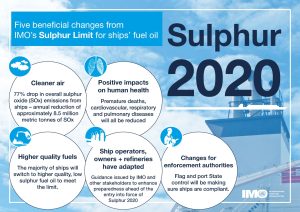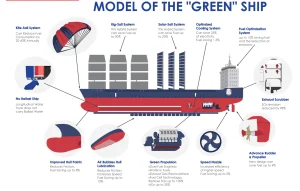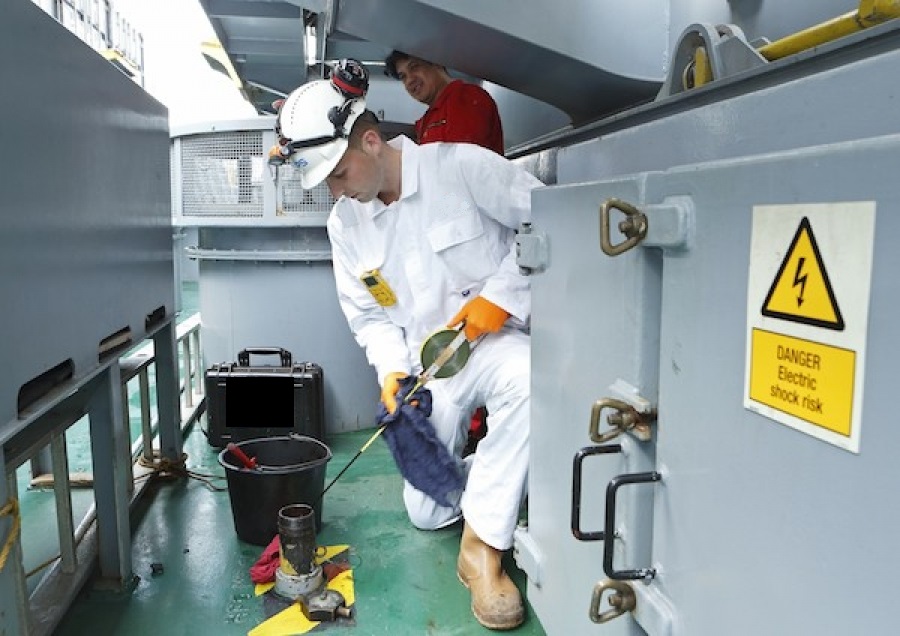Fuel management is a critical aspect of modern shipping operations. With rising fuel costs and stringent environmental regulations like the International Maritime Organization’s (IMO) 2020 sulfur cap, ship operators must adopt effective fuel management strategies to remain competitive, environmentally compliant, and financially sustainable. This article explores best practices in fuel monitoring, consumption analysis, and regulatory adherence to help operators optimize ship performance while minimizing operational costs.
Fuel accounts for nearly 50-60% of a ship’s operating expenses, making efficient fuel management essential for profitability. Additionally, environmental concerns have led to international regulations aimed at reducing greenhouse gas emissions and marine pollution. Non-compliance with these regulations can result in hefty fines, port bans, and reputational damage. Effective fuel management encompasses several key areas, including fuel procurement, quality monitoring, onboard consumption, and emission reporting. Together, these elements ensure operational efficiency, regulatory compliance, and reduced environmental impact.

Core Elements of Fuel Management
1. Fuel Procurement and Quality Assurance: Ship operators must procure fuel that meets the latest environmental standards, particularly low-sulfur fuels required by IMO 2020 regulations. Establishing contracts with reliable fuel suppliers ensures consistent quality and compliance. Example: A container shipping company secured long-term agreements with certified fuel suppliers, ensuring uninterrupted fuel delivery and reduced costs by 15% over two years.
2. Fuel Monitoring and Measurement: Accurate fuel measurement is essential for tracking consumption and identifying potential inefficiencies. Technologies such as flow meters and fuel monitoring systems enable real-time data collection, ensuring transparency and accuracy. Case Study: A bulk carrier reduced its fuel consumption by 10% by installing advanced fuel monitoring sensors, leading to significant annual savings.
3. Engine Performance Optimization: Optimizing engine performance through regular maintenance and engine tuning improves fuel efficiency. Common practices include cleaning hulls, upgrading propellers, and using high-efficiency engine lubricants.
4. Voyage Planning and Route Optimization: Advanced voyage planning systems help identify optimal routes, minimizing fuel consumption by avoiding adverse weather and high-traffic areas. Smart routing can reduce voyage time and fuel usage by up to 20%.
5. Speed and Load Management: Operating ships at eco-speed, also known as slow steaming, lowers fuel consumption significantly. Balancing ship speed with cargo load is essential for maximizing efficiency.
–
Environmental Compliance: Meeting IMO 2020 Standards
The International Maritime Organization (IMO) 2020 regulation mandates a global sulfur cap of 0.5% on marine fuels, significantly reducing the previous limit of 3.5%. This environmental regulation aims to curb sulfur oxide (SOx) emissions, which contribute to air pollution, acid rain, and respiratory health issues. Shipowners and operators must adopt one or more compliance strategies to meet these stringent environmental standards while maintaining operational efficiency and cost-effectiveness. Switching to low-sulfur fuel oil (LSFO) is one of the most straightforward compliance methods. It allows ships to operate without requiring modifications, making it a practical choice. However, the transition comes with challenges such as fuel price volatility, supply chain constraints, and compatibility issues with onboard fuel management systems. Ensuring steady availability and maintaining equipment performance are critical concerns when adopting this approach.
Another compliance method involves installing exhaust gas cleaning systems, commonly known as scrubbers. These devices remove sulfur emissions from ship exhaust gases, allowing continued use of heavy fuel oil (HFO). Scrubbers come in three types: open-loop systems using seawater for scrubbing, closed-loop systems using freshwater with chemicals, and hybrid models that switch between both modes. While scrubbers reduce long-term fuel costs and offer operational flexibility, they require significant upfront capital, ongoing maintenance, and careful waste disposal management. Transitioning to alternative fuels is also gaining traction as a long-term solution. Fuels such as liquefied natural gas (LNG), biofuels, and synthetic fuels not only reduce SOx emissions but also lower carbon dioxide (CO2) and particulate matter (PM) output. LNG provides cleaner combustion but necessitates dedicated storage tanks and engine modifications. Biofuels, being renewable and biodegradable, offer sustainability but are still limited in supply. Synthetic fuels, produced from renewable energy sources, hold enormous potential but require technological advancement and significant investment.
While these alternative fuels promise environmental sustainability and compliance with evolving IMO regulations, they also present challenges. Developing global fuel supply chains and upgrading bunkering infrastructure remain critical hurdles. Additionally, retrofitting existing fleets is both costly and technically demanding. The evolving nature of international maritime regulations adds further complexity, requiring shipowners to make forward-thinking investment decisions. Compliance with the IMO 2020 sulfur cap represents a pivotal step toward sustainability in the maritime industry. Shipowners must carefully balance the financial, operational, and environmental aspects of various strategies. A combined approach involving the use of compliant fuels, installation of scrubbers, and gradual adoption of alternative fuels can ensure environmental compliance while supporting long-term operational resilience and competitiveness.

–
Monitoring and Reporting Requirements
Compliance with environmental standards also involves accurate emissions monitoring and reporting. Key systems include:
- Automatic Identification System (AIS): Tracks ship location and speed, supporting fuel efficiency analysis.
- Emission Control Area (ECA) Monitoring: Ships operating in ECAs must report emissions data regularly.
- IMO Data Collection System (DCS): Requires ships of 5,000 gross tonnage or more to report fuel consumption annually.
Best Practices for Fuel Management
Best practices for fuel management involve a combination of technology, training, and proactive maintenance to optimize fuel usage and improve operational efficiency. Implementing smart fuel management systems is a critical step, as integrated software solutions provide real-time data on fuel consumption. These systems enable ship operators to make data-driven decisions, minimize fuel waste, detect fuel theft, and optimize engine performance. Equally important is conducting regular crew training, as well-trained personnel are more effective in implementing fuel-saving measures. Training programs should focus on engine maintenance, eco-steaming techniques, and emergency fuel management protocols to ensure crews are equipped to manage fuel efficiently.
Preventive maintenance plays a vital role in achieving peak engine performance and avoiding breakdowns. Routine tasks such as cleaning fuel injectors, calibrating flow meters, and inspecting fuel tanks are essential to maintain optimal fuel efficiency. Additionally, establishing fuel efficiency benchmarks allows operators to monitor progress through Key Performance Indicators (KPIs) for fuel consumption and emissions. These benchmarks help track performance over time and identify specific areas for improvement.
A case study highlights the impact of these practices: a European ferry operator successfully reduced its carbon emissions by 30% by setting monthly fuel efficiency targets and offering incentives to crew members based on their performance. This approach demonstrated how combining clear goals with proactive measures can lead to substantial environmental and operational benefits.
Future Trends in Fuel Management
1. Digital Twin Technology: Digital twin systems create virtual replicas of ships, allowing operators to simulate fuel usage scenarios and optimize operations without physical testing.
2. Autonomous Shipping: Autonomous ships equipped with AI-driven fuel management systems are likely to become mainstream, reducing human error and improving operational efficiency.
3. Green Fuel Innovations: Research into zero-emission fuels such as hydrogen and ammonia is gaining momentum, promising a cleaner and more sustainable future for the shipping industry.

Credit: Marine Digital
Effective fuel management is essential for the long-term success of shipping operations. By implementing best practices such as accurate fuel monitoring, route optimization, and compliance with IMO 2020 regulations, ship operators can reduce operational costs, enhance environmental sustainability, and maintain a competitive edge. Investing in advanced technologies, crew training, and sustainable fuel alternatives will further strengthen the industry’s resilience in a rapidly evolving maritime landscape.

